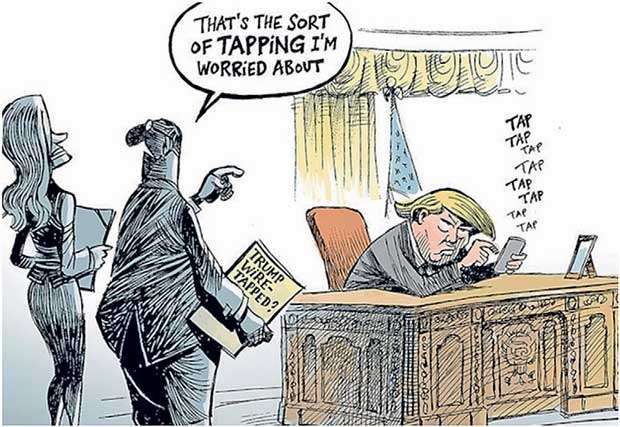20 Jun 2018 - {{hitsCtrl.values.hits}}

 Many stories doing the rounds on the Internet a few weeks ago speculated about the future of the government and about a list of people who benefited from the bond scam. Both these issues however have been disputed by the government.
Many stories doing the rounds on the Internet a few weeks ago speculated about the future of the government and about a list of people who benefited from the bond scam. Both these issues however have been disputed by the government.
Then often the story of a petroleum shortage on the net has brought many people onto the streets at dead of night, unnecessarily causing chaos on the streets. The Internet is an amazing place and the beauty of the Internet is that there’s no space limit.
The Internet is an international network of networks, offers individuals and organisations a fast electronic way to communicate with each other. The Internet provides a quick and easy access to the exchange of information, to the sharing of apps and a way of joining discussion groups on every subject imaginable.
Internet stories are increasingly graphic-oriented. Today, access to information on the Internet has become easier and more efficient since the appearance of the Mosaic and Netscape applications. The Internet plays an important role in our worldwide electronic information society today.
Very few governments have the competence to understand the power of the WWW. They believe just because you read it on Facebook or somebody’s blog or in an email from a friend or relative doesn’t mean it’s true. It’s probably not.
However, they need to address the problem of bogus ‘stories’ from fake news sites: A false or misleading viral rumours we are asked about most often at social gatherings left to do the rounds can only hurt the government much more than they can imagine.
Therefore, the existence of any electronic communication capability – an open platform that enables anyone, everywhere, to share information, access opportunities and collaborate across geographic and cultural boundaries globally, is fundamentally a vehicle for disseminating positive or negative information and can spread like wildfire courtesy of the very open and unlimited capabilities of the Internet, while the government happily naps.
Potential
Today, the technological change is reshaping political communication all over the world. This is especially true when it comes to communicating political issues with young people and political parties who ignore these new developments will be at their peril.
The experience of South Korea is certainly a case in point. A cyber-savvy campaign mobilized the youth vote to deliver victory to President ROH. The usefulness of the Internet for fundraising is also an area very few people use.
The Web is certainly an area of great possibility as shown by Obama’s campaign for the 2008 Democratic presidential nomination in the US. He emerged as an early front-runner due in part to his building a web-based constituency and mobilizing a massive amount of small donations via the Internet.
Power of social media
Social media has now rightly been celebrated by activists as an empowering tool for ordinary citizens to mobilize against repressive rulers and make marginalized voices heard. Behind the scenes, governments across the world have been extremely active in developing and refining a whole arsenal of tools to have sight of the digital flow of information in their own country, to prevent the destruction of enduring societal values and institutions. However, despite that threat, activists use Twitter and Facebook accounts to inform each other very effectively.
Therefore, governments need to act smart and protect their space before they become obsolete. In the final analysis, the ‘digital divide’ today appears to extend seamlessly into the political realm to disrupt the status quo, with a strong positive relationship between the socio-economic status.
(Dinesh Weerakkody is a thought leader)
18 Nov 2024 15 minute ago
18 Nov 2024 1 hours ago
18 Nov 2024 1 hours ago
18 Nov 2024 1 hours ago
18 Nov 2024 1 hours ago